第八届景观可持续科学论坛
第三轮通知
2023年6月16-18日
江西·南昌
主办
中国自然资源学会资源持续利用与减灾专业委员会
自然资源部大湖流域国土空间生态保护修复工程技术创新中心
承办
江西财经大学生态文明研究院
江西财经大学应用经济学院(数字经济学院)
会议地点
江西省南昌市江西泰耐克国际大酒店
主题和背景:
景观可持续性是指特定景观长期不断提供具有景观特性的生态系统服务,进而保持或提高人类福祉的能力。景观可持续科学是在可持续科学与景观生态学基础上发展起来的,聚焦于景观和区域尺度的,通过空间显示方法来研究景观格局、生态系统服务和人类福祉之间相互关系的一门新兴科学。景观可持续科学强调精细和较粗尺度上景观间的相互作用及等级联系,并重点关注生物多样性和生态系统过程,以及气候变化、土地利用变化和其他社会经济驱动过程对生态系统服务和人类福祉的影响。
景观可持续科学论坛是由邬建国教授和史培军教授于2013年联合发起的,旨在推动景观可持续科学发展的一个高层次国际学术交流论坛。论坛每年举办一次,迄今已经连续举办七届。论坛的目标在于促进景观可持续科学的理论发展以及因地制宜的实践应用,为促进中国乃至世界可持续科学的发展提供一个学术交流平台。主要议题包括可持续性、恢复性、脆弱性、生态系统服务、土地系统设计与模拟以及人类福祉等。每届论坛都将邀请来自世界各国与地区,在生态学、地理学、环境经济学以及可持续科学等领域的著名学者,就上述议题开展深入讨论。
景观可持续科学论坛学术委员会:
主席:邬建国(亚利桑那州立大学)
史培军(北京师范大学)
秘书长:刘志锋(北京师范大学)
委员:郭 杰(南京农业大学) 何春阳(北京师范大学)
彭 建(北京大学) 仇江啸(佛罗里达大学)
谢花林(江西财经大学) 于德永(北京师范大学)
张 庆(内蒙古大学) 周伟奇(中国科学院生态环境研究中心)
庄优波(清华大学)
第八届景观可持续科学论坛组织委员会:
主席:谢花林(江西财经大学)
委员:王守坤、肖文海、舒成、姚冠荣、唐文跃、陈拉、吕添贵、卢华、邬志龙、邹金浪、何亚芬、张新民、李诗元、陈倩茹、曾小箕(江西财经大学)
秘书长:谢花林(江西财经大学)、何春阳(北京师范大学)
秘书:曾小箕(江西财经大学)、张新民(江西财经大学)、刘志锋(北京师范大学)、黄庆旭(北京师范大学)
会议议程:
报到注册 |
2023年6月16日 (星期五) |
注册时间:9:00-23:00;注册地点:江西省南昌市江西泰耐克国际大酒店(江西省南昌市红谷滩新区新府路28号)。 |
6月17日(星期六) 大会报告,主题:“Landscape Sustainability Science and Future Earth” (会议语言:英文,会议地点:江西泰耐克国际大酒店二楼秋水厅) |
主持人:邬建国 教授 |
08:30-09:00 |
致辞 致欢迎词 承办方致辞 |
史培军 教授 江西财经大学校领导 谢花林 教授 |
09:00-09:30 |
论坛介绍 |
邬建国 教授 |
09:30-10:00 |
合影/茶歇 |
10:00-11:00 |
Bridging the action gap between landscape science and landscape governance: insights from Singapore |
Puay Yok Tan 教授 |
11:00-12:00 |
Using a scale dependency approach to explore biodiversity distribution in a heterogeneous agroecological ecosystem |
Yaron Ziv 教授 |
12:00-13:30 |
午餐(一楼自助餐厅) |
主持人:邬建国 教授 |
13:30-14:30 |
Building a shared vision: spatially explicit participatory scenarios for biodiversity and ecosystem services in southwestern Ethiopia |
Joern Fischer 教授 |
14:30-15:30 |
What are sustainable landscapes? Re-imagining landscapes for achieving sustainability targets |
Peter Verburg 教授 |
15:30-15:40 |
茶歇 |
15:40-16:40 |
A social-ecological agenda for transforming landscape management toward sustainability |
Tobias Plieninger 教授 |
16:40-17:40 |
Challenges and Solutions for Forest Biodiversity Conservation: Sweden as a case study for assessment of Policy, Implementation Outputs, and Consequences |
Per Angelstam 教授 |
17:40-18:30 |
Panel discussion |
18:30 |
晚餐(一楼自助餐厅) |
|
|
|
|
6月18日(星期日)上午 大会报告,主题:“Landscape Sustainability Science and Future Earth” (会议语言:英文,会议地点:江西泰耐克国际大酒店二楼秋水厅) |
主持人:黄庆旭 副教授 |
08:30-09:30 |
The three faces of landscape sustainability |
Laura Musacchio 教授 |
09:30-10:30 |
Integrated social-ecological research: insights on urban environmental dynamics and landscape sustainability |
Kelli Larson 教授 |
10:30-11:30 |
Urbanization and Socioeconomic Development: Decarbonizing Agglomeration Effects |
José Lobo 教授 |
11:30-12:00 |
Panel discussion |
12:00-13:30 |
午餐(一楼自助餐厅) |
6月18日(星期日)下午 大会报告,主题:“景观可持续科学、生态文明与美丽江西” (会议语言:中文,会议地点:江西泰耐克国际大酒店二楼秋水厅) |
主持人:何春阳 教授 |
13:30-14:10 |
景观可持续科学:从社会一生态系统的理解到人与自然协同的设计 |
史培军 教授 |
14:10-14:50 |
国土景观多尺度保护 |
杨锐 教授 |
14:50-15:30 |
洞庭湖流域生态系统服务权衡 |
彭建 教授 |
15:30-16:10 |
城市景观可持续性研究进展 |
何春阳 教授 |
16:10-16:20 |
茶歇 |
16:20-17:00 |
沙地景观可持续 |
梁存柱 教授 |
17:00-17:40 |
城市水资源短缺与景观解决途径 |
刘志锋 副教授 |
17:40-18:20 |
生态产品价值实现与景观可持续性 |
谢花林 教授 |
18:30 |
晚餐(一楼自助餐厅) |
学术考察 |
2023年6月19日至20日 (星期一至星期二) |
考察路线: 南昌-白鹿洞书院-庐山(住宿)-南昌(两天) |
会议费用:学生1200元/人(凭学生证);其他2200元/人。可开具会议费发票,注册费用主要用于场地、餐费和会议资料,不含住宿费及会后考察费。
会议注册:请拟参会者于2023年5月31日前,扫描下方二维码提交会议回执或填写并发送下方会议回执单到:zenger0323@163.com。
第八届景观可持续科学论坛回执单
姓 名 |
|
性别 |
|
民族 |
|
职称 |
|
单位及职务 |
|
手机号码 |
|
E-mail |
|
通信地址 |
|
邮 编 |
|
食宿安排 |
□ 请会议安排 □ 参会者自理 |
□ 单间 □ 合住 |
会后考察 |
□ 是 □ 否 |
发票信息 |
|
|
|
|
|
|
|
|
|
|
|

会议酒店及交通:
江西省南昌市江西泰耐克国际大酒店:南昌市红谷滩新区新府路28号。
1、昌北机场→泰耐克国际大酒店:约30公里,机场公交4号线:直达江西泰耐克国际大酒店,8:00-19:00每一小时一班往返;出租车45分钟,约100元。
2、南昌西站→泰耐克国际大酒店:约14公里,地铁2号线至地铁大厦站,换乘1号线至秋水广场站2、3号出口即到;公交50路直达(秋水广场地铁站);出租车30分钟,约50元。
3、南昌站→泰耐克国际大酒店:约10公里,地铁2号线至地铁大厦站,换乘1号线至秋水广场站2、3号出口即到;出租车30分钟,约30元。
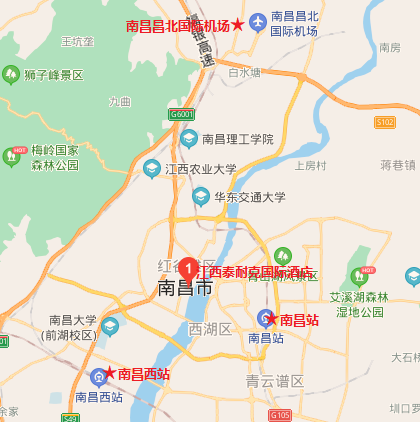
推荐入住酒店:江西泰耐克国际大酒店(会议协议宾馆,350元/400元,含早餐)
注意事项:本次会议时间正值旅游旺季,请各位参会人员务必提前预订好住宿及往返交通,以免耽误行程。
特邀英文报告人
(按姓氏拼音排序)
Per Angelstam
(Professor, Swedish University of Agricultural Sciences, Sweden)

Per Angelstam (male) is a Swedish researcher and entrepreneur focusing on rural and regional sustainaility fostered by evidence-based conservation targets and multi-level governance in landscapes. Since 2021 Per is professor emeritus (forest and natural resource management) at the Swedish University of Agricultural Sciences, and professor (sustainable forest management) at the Inland Norway University of Applied Sciences. He is also visiting professor at Groningen University in the Netherlands. Per focuses on sustainability science by integrating knowledge production about both social and ecological systems in landscapes and regions representing different contexts, as well as collaboration with practitioners to encourage evidence-based learning at different levels of governance, planning and management. He has published 212 international peer-review articles, 6 books and special issues, 39 peer-review book chapters, 84 conference articles, 74 reports, and 79 popular science publications. Per’s Google Scholar lists 19,800 citations and the h-index is 68.
Joern Fischer
(Professor, Leuphana Universitaet Lueneburg, Germany)
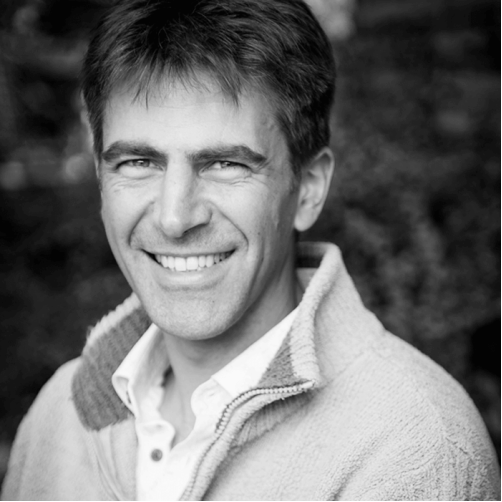
Joern Fischer is professor of "Sustainable Landscapes" at the Faculty of Sustainability at Leuphana University Lueneburg (Germany), where he co-directs the Social-Ecological Systems Institute. He is interested in biodiversity conservation in human-dominated landscapes. His work recognises that successful conservation in so-called ‘working landscapes’ must go hand in hand with addressing social challenges. For this reason, much of Joern’s research has treated landscapes as social-ecological systems. Joern has led in-depth social-ecological systems research in farming landscapes in Australia, Romania and Ethiopia.
Homepage: https://www.leuphana.de/en/institutes/sesi/team/joern-fischer.html
Kelli Larson
(Professor, Arizona State University, USA)
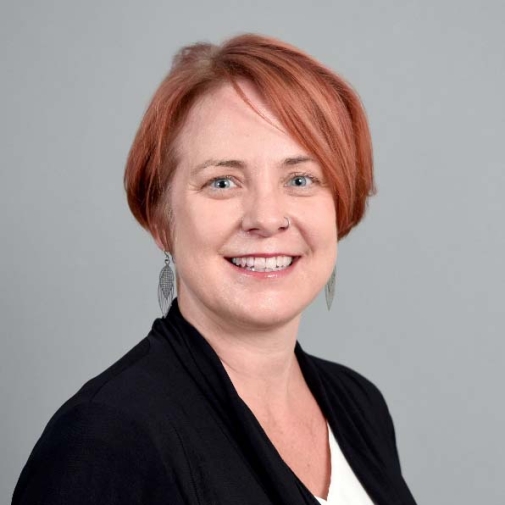
Kelli Larson earned a PhD in Resource Geography from Oregon State University in 2005, the same year she joined Arizona State University where she is now a Professor in Geography and Sustainability. Larson has served as an investigator on several National Science Foundation projects, including as the Lead Social Scientist for the Central Arizona-Phoenix Long-Term Ecological Research (CAP LTER) project. She is the Director of the Phoenix Area Social Survey, which is central to CAP’s long-term data collection initiatives. As a human-environment geographer, Larson’s research examines social-ecological system dynamics in urban landscapes and ecosystems. Larson’s ongoing research centers on: 1) residential and urban land design and management, including the implications for environmental conservation and landscape sustainability; 2) human-nature interactions, including residents’ experiences, attitudes, and behaviors toward wildlife and (native) vegetation; and 3) public perceptions regarding the ecosystem services and disservices derived from local to regional landscapes, inclusive of both natural and build (i.e., green and grey) infrastructure. Her approach involves synthesizing disparate literatures and employing mixed methods to produce interdisciplinary knowledge that reveals the social salience and feasibility of interventions that support biological conservation, as well as landscape and urban sustainability.
Homepage: https://asu.pure.elsevier.com/en/persons/kelli-larson
José Lobo
(Professor, Arizona State University, USA)
José Lobo is on the faculty of the School of Sustainability,
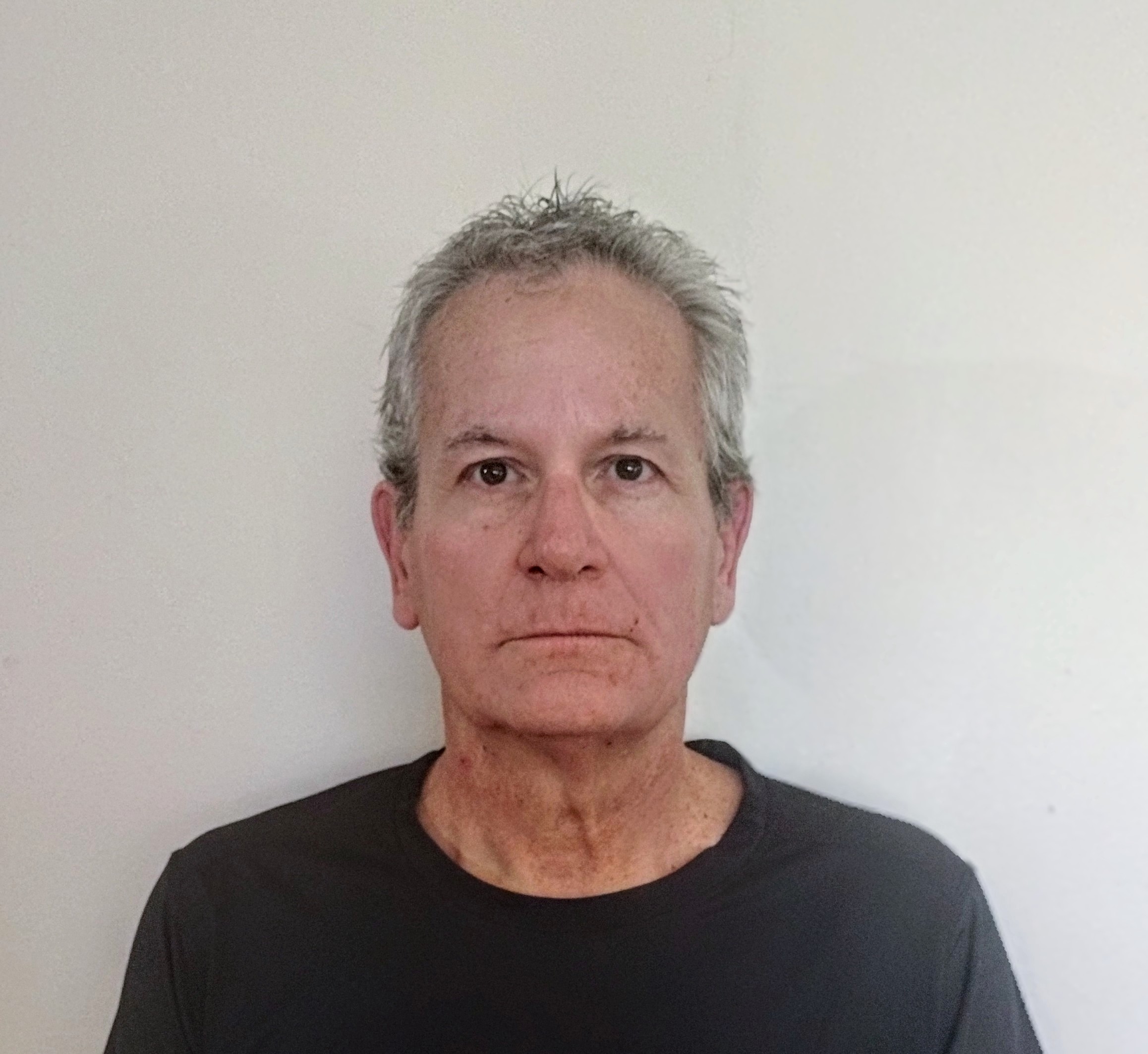
College of Global Futures, Arizona State University (Tempe, Arizona, USA). Trained in physics, applied mathematics, complexity science and urban economics, Lobo studies the role of urbanization and of cities in driving socioeconomic development. Lobo has been a prominent participant in the recent development of “urban science”, a transdisciplinary field that builds upon the accumulated insights from many disciplines seeking to understand the fundamental processes that drive, shape and sustain cities and urbanization. Collaborating with urban economists, economic geographers, archaeologists, anthropologists, urban sociologists, urban ecologists, physicists and complexity scientists he is seeking to establish a theoretical and empirical basis for the study of human settlements through history. This work frames all human settlements, from hunter-gatherer camps to modern megacities, as concentrations of people, things, energy and information in space and time, and leads to quantitative predictions regarding relationships between proxy measures of settlement population and a variety of social, economic and infrastructural quantities. He is currently studying how urban science can inform the design of policies facilitating adaptation to the effects of climate change on cities in order to promote equitable, sustainable and climate change resilient urban development. Lobo is very interested in urban adaptation to climate change in China given the role that urbanization has played in China’s vertiginous economic development since 1980 and the important role it is expected to continue playing in the country’s next stage of development. His research has been published in journals such as Journal of Urban Economics, Regional Studies, Environment and Planning B, Proceedings of the National Academy of Sciences of the USA, Research Policy, Science Advances, and Urban Climate.
Laura Musacchio
(Professor, University of Minnesota, USA)
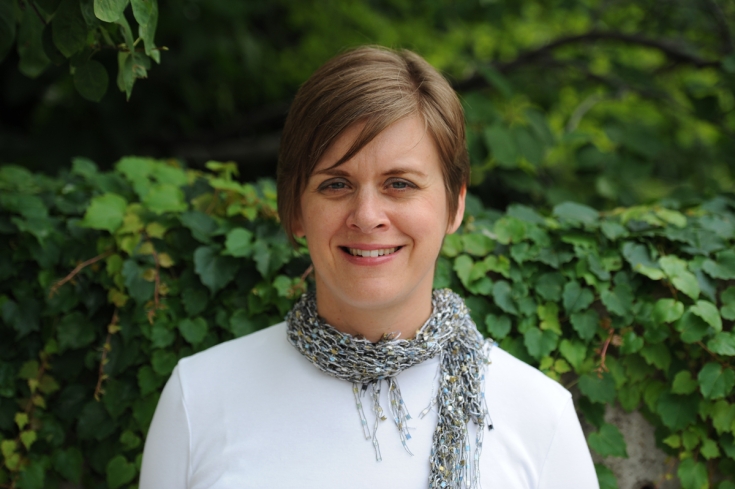
Dr. Laura Musacchio is an Associate Professor in the Department of Landscape Architecture at the University of Minnesota Twin Cities in Minneapolis, USA. She is also a Fellow of the Institute on the Environment and the Director of the Restorative Environments and Biocultural Design Lab. Her faculty affiliations at the University of Minnesota include the Conservation Sciences program in the College of Food and Natural Resource Sciences at the University of Minnesota. In the past, she was also affiliated with the Urban and Regional Planning Program and the Water Resource Sciences Program. She was selected to be a summer internship mentor in 2022 for the Doris Duke Conservation Scholars Program at the University of California Santa Cruz, which seeks to diversify leadership in the conservation fields by developing the next generation of leaders among undergraduate students. In addition, she was selected to be a member of the University of Minnesota Graduate School Advisory Board from 2022 to 2025.
Her research emphasizes how cities, towns, and regions of the world can be made more biophilic, biodiverse, sustainable, and resilient in the twenty-first century by helping people to reconnect to the web of life. She specifically focuses on how open space systems can be consciously (re)designed to provide enough suitable spaces for people, biodiversity, habitats, and infrastructure. This issue is a pressing concern because open space systems are a key strategy for biophilic design, climate adaptation plans, public health interventions, ecosystem service enhancement, and regional watershed management. Yet, public money to support green space systems is often not a top priority for many cities, towns, states, provinces, and nations.
Her current research projects emphasize (1) finding new ways to integrate biophilic sensations, emotions, thoughts, and meanings into the sustainable design of homes, neighborhoods, cities, and metropolitan regions; (2) examining how biophilic design, biocultural design, rewilding, and ecological restoration might be used to conceptually rethink and redesign regional and urban landscapes for public health, biodiversity, and ecosystem services; and (3) theoretical, conceptual, and applied connections between sustainable landscapes and landscape sustainability. She has presented her research in Australia, Austria, Belgium, Canada, China, Finland, Germany, the Netherlands, New Zealand, and the United States. She has also worked on international design and planning projects.
Her research has been published in journals such as Landscape and Urban Planning, Landscape Journal, Landscape Ecology, and Urban Ecosystems. She is an editorial board member of Landscape and Urban Planning and Landscape Architecture Frontiers. In addition, she was an editorial board member of Landscape Ecology and Biodiversity and Conservation.
Homepage: https://design.umn.edu/directory/laura-musacchio
Tobias Plieninger
(Professor, University of Göttingen and University of Kassel, Germany)
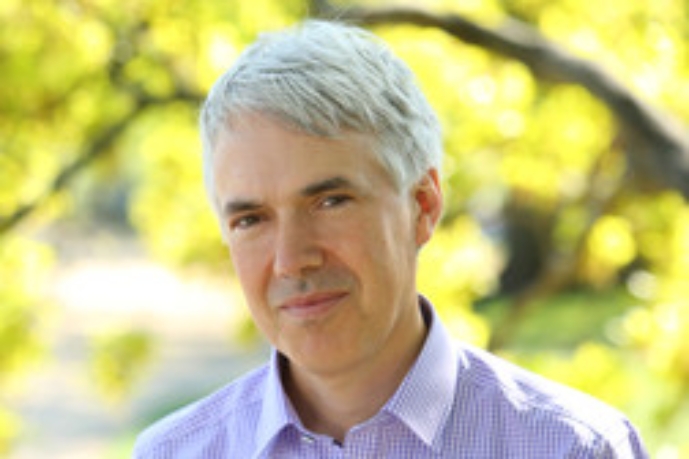
Tobias Plieninger is a Professor in Social-Ecological Interactions at the University of Göttingen and the University of Kassel (Germany). He is a sustainability scientist with a commitment to inter- and transdisciplinary research at the social-ecological interface. In particular, he studies rural landscape change, ecosystem services, and sustainability transformations. His research focuses on the complex relationships between agriculture, forestry, nature conservation, and other sectors of natural resource management. He received a PhD in Forest and Environmental Sciences in 2004 (University of Freiburg). Before he held positions at the University of Copenhagen and the Berlin-Brandenburg Academy of Sciences and Humanities. He is Associate Editor of “Landscape and Urban Planning”, “People and Nature”, and “Sustainability Science”. Plieninger is co-editor of three academic books: „The Science and Practice of Landscape Stewardship“ (Cambridge University Press), „European Wood-Pastures in Transition“ (Routledge), and „Resilience and the Cultural Landscape“ (Cambridge University Press). In 2019, 20, 21, and 22 he was recognized as a Highly Cited Researcher in the Social Sciences by Clarivate/Web of Science.
Twitter: @PlieningerLab; Blog: https://medium.com/people-nature-landscapes
Homepage: https://uni-kassel.de/go/plieninger
Tan Puay Yok
(Professor, National University of Singapore, Singapore)
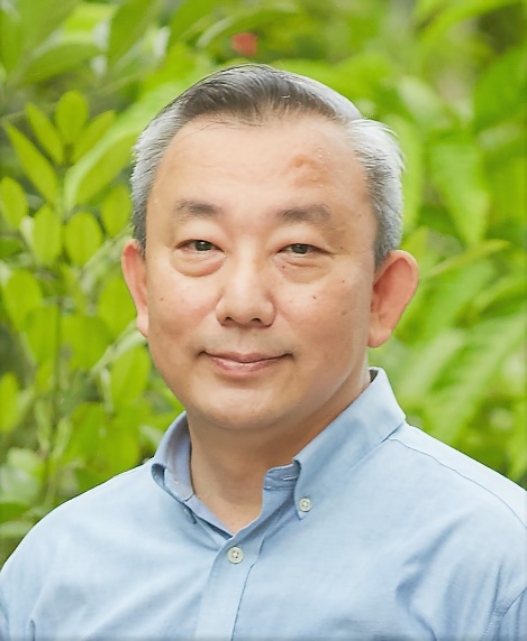
Dr. Tan Puay Yok is a Dean’s Chair Professor and cluster leader of the Landscape Studies group at the Department of Architecture. His academic training was in horticulture science and plant physiology, and his research, teaching, and professional activities now focus on the science, policies, and practices of urban greening and ecology of the built environment. He combines his background in the sciences, experience in urban governance from the public sector, and interactions with practitioners to apply knowledge for urban greening to improve environmental quality and societal well-being. He leads the Urban Ecology Lab at the Department of Architecture. He is the Co-Editor-in-Chief for Landscape and Urban Planning (Elsevier), Associate Editor for Journal of Urban Ecology (Oxford University Press), Editorial Board Member of npj Urban Sustainability (Nature Partner Journals. He also advises on greening policies, landscape design and planning projects in the region as a means of transferring knowledge from the academia to practice.
With effect from 31 Dec 2019, he is jointly appointed by the National Parks Board, Singapore, as the Director of the Singapore Botanic Gardens (https://www.nparks.gov.sg/sbg). The Singapore Botanic Gardens is a leading institute in tropical botany and horticulture and has over its 164-year history, played a key role in the social, economic and environmental history of Singapore and the region. It is one of only three botanic gardens in the world that is inscribed as a UNESCO World Heritage site. He is concurrently the Chief Science and Technology Officer for the National Parks Board (https://www.nparks.gov.sg/), the national agency responsible for greenery, ecology and conservation matters in Singapore.
Homepage: https://blog.nus.edu.sg/tanlab/, https://cde.nus.edu.sg/arch/staffs/tan-puay-yok-dr/
Peter Verburg
(Professor, Vrije University Amsterdam, Netherlands)
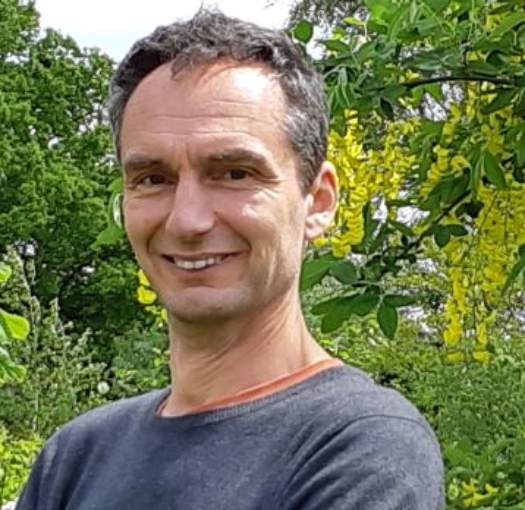
Peter Verburg has established an internationally recognized leading position in Environmental Geography with a key focus on socio-ecological dynamics in land systems. He has developed and applied a large portfolio of methods to measure, model and analyze spatial dynamics of land use and human-environment interactions at scales from local to global. His research bridges different disciplines, including social sciences, econometrics, geography and earth. Having worked with collaborators from a wide variety of fields, Peter has established insight in the different disciplinary traditions and vocabularies which facilitates interdisciplinary collaboration. Peter has been leading the development of one of the most frequently used land use models worldwide (CLUE-s/Dyna-CLUE/CLUMondo). More recent research work focusses on sustainability transitions and the analysis and modelling of behavioral changes and lifestyles and their influence on land use.
Peter has served in many international committees. He was elected chair (2012-2016) of the Scientific Steering Committee of the Global Land Programme (http://www.glp.earth). During 2016-2018 he has been chairing the Future Earth Knowledge-Action Network (KAN) on the Food-Water-Energy Nexus and from 2017 to 2022 he was a member of the SPI (Science-Policy-Interface) of the UNCCD and currently he is a commissioner in the Earth Commisssion (www.earthcommission.org)
Peter is head of the Department of Environmental Geography, part of the Institute for Environmental Studies (IVM) at VU University Amsterdam. He is a visiting professor at WSL Switzerland where he works on linking local landscape change dynamics to large scale sustainability targets. He is co-Editor-in-Chief of the Journal Landscape and Urban Planning.
Homepage: https://research.vu.nl/en/persons/peter-h-verburg twitter: @peterverburg11
Jianguo Wu
(Professor, Arizona State University, USA)
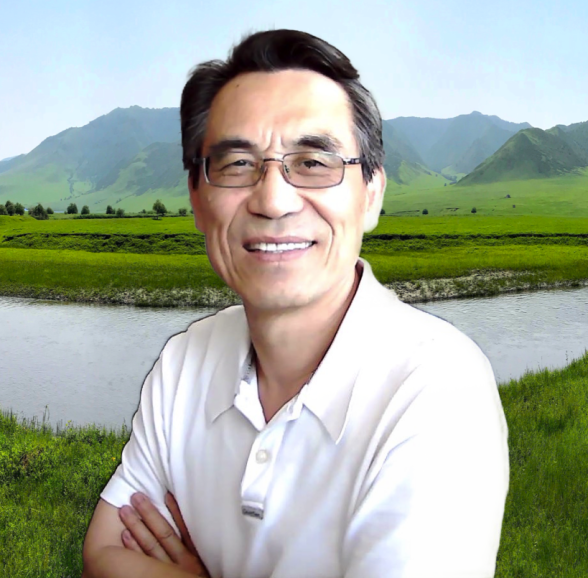
Dean’s Distinguished Professor of Landscape Ecology and Sustainability Science, School of Life Sciences & School of Sustainability, Arizona State University, Tempe, Arizona, USA. B.S. (1982) in biology from Inner Mongolia University and M.S. (1987) and Ph.D. (1991) in ecology from Miami University, Oxford, Ohio, USA. National Science Foundation (NSF) postdoctoral fellow at Cornell University (1991-1992) and Princeton University (1992-1993). Current research areas: landscape ecology, urban ecology, and sustainability science. Authored/edited 20 books and more than 400 journal articles/book chapters.
Editor-in-Chief of Landscape Ecology since 2005, and Editorial Board member for several international journals. Other professional services: Chair of Asian Ecology Section of Ecological Society of America (1999-2000); Program Chair of the US Association for Landscape Ecology (US-IALE) in 2001; Councilor-at-Large of US-IALE (2001-2003); Founding Director of Sino-US Center of Conservation, Energy and Sustainability Science (2007-2012). Major awards and honors: American Association for the Advancement of Science (AAAS) Award for International Scientific Cooperation (2006); Elected AAAS Fellow (2007); Leopold Leadership Fellow (2009); Distinguished Landscape Ecologist Award from US Association for Landscape Ecology (2010); Served with Distinction as Editor-in-Chief of Landscape Ecology from the US Association for Landscape Ecology (2010); Outstanding Scientific Achievements Award from International Association for Landscape Ecology (2011); Distinguished Service Award from the US Association for Landscape Ecology (2012); Elected Fellow of Ecological Society of America (2019); Web of Science Highly Cited Researcher 2019 (Environment and Ecology); Web of Science Highly Cited Researchers 2020, 2021, 2022 (Cross-Field).
Yaron Ziv
(Professor, Ben-Guron University, Israel)

Yaron Ziv is a community and spatial ecologist who studies evolutionary and ecological drivers of biodiversity processes and patterns at different spatiotemporal scales. Ziv’s Spatial Ecology Lab explores diverse hypotheses regarding the distribution of organisms (plants, arthropods, reptiles, mammals and birds) in several heterogeneous and fragmented model ecosystems to understand how species-environment relationships affect individuals, populations and species distributions. Ziv’s lab also involves in conservation issues and practices, including rare species preservation and management, ecological restoration and agroecology. Agroecological aspects have been studied in the last 20 years with active on-the-ground involvement of regional leaders (e.g. Mayors of regional municipalities), farmers and relevant NGOs. The ecological restoration studies take place at the phosphate mines of ICL while new practices are now being applied based on the lab’s real research-oriented conclusions. Ziv is highly involved in conservation decision-making and education activities through serving on national and international committees. Among others, Ziv is currently a member of the Managing Committee of the Society for Protection of Nature in Israel and a member of the Man and Biosphere (MAB) Committee of the Israel National Commission for UNESCO. At BGU, Ziv was the Chairperson of the ‘Green Campus Initiative’ for 5 years and is currently the Head of the Goldman Sonnenfeldt School of Sustainably and Climate Change.
Homepage: https://lifewp.bgu.ac.il/wp/yziv/
https://cris.bgu.ac.il/en/persons/yaron-ziv
特邀中文报告人
(按姓氏拼音排序)
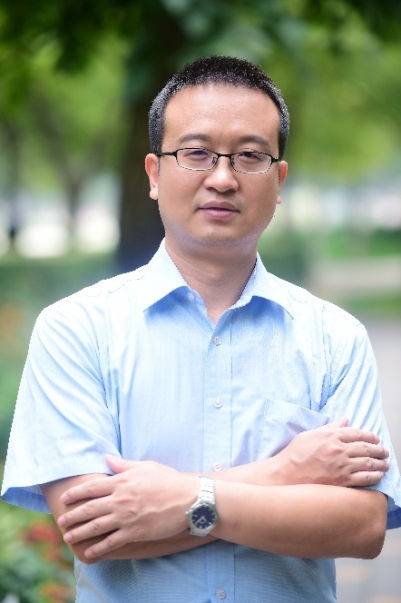
何春阳(教授,北京师范大学)
何春阳,四川射洪人。教授,博士生导师。现任北京师范大学地理科学学部灾害风险科学研究院院长、环境演变与自然灾害教育部重点实验室主任和地表过程与资源生态国家重点实验室副主任。兼任国际灾害风险科学学报(International Journal of Disaster Risk Science)副主编和中国自然资源学会资源持续利用与减灾专业委员会主任。1998年毕业于兰州大学地理科学系,获自然地理学学士学位。2003年毕业于北京师范大学,获自然地理学博士学位。2002年在加拿大西安大略大学地理系访学。2005-2007年在日本京都大学防灾研究所做博士后。主要从事综合自然地理学、土地利用/覆盖变化和生态系统服务以及城市自然灾害和城市景观可持续性研究。近年来,先后主持国家自然科学基金优秀青年基金、国家“973”项目课题和国家重点研发项目课题等国家级项目多项,出版学术专著5部,在“Nature”和“Nature Communications”等主流学术期刊上发表学术论文近200篇。在城市土地利用/覆盖变化过程监测、模型模拟和影响评估方面取得了一系列创新成果。入选教育部新世纪优秀人才支持计划,获中国自然资源学会优秀科技奖,还入选 “中国高被引学者(地理学)”榜单。
梁存柱(教授,内蒙古大学)

梁存柱,内蒙古丰镇市人。内蒙古大学生态与环境学院二级教授,博士生导师,内蒙古自治区突出贡献专家,内蒙古生态学会秘书长,《植物生态学报》编委。多年从事干旱区植被生态学、草地退化与恢复演替及放牧生态学、植被遥感与地理信息系统等领域的研究工作。主持完成及在研国家基金项目7项;主持完成科技部“十三五”重点研发项目、“十二五”科技支撑课题及“973”前专项项目各1项,主持实施科技部 “十四五”重点研发项目课题1项;发表学术论文120余篇。主编、参编专著7部、专题地图3 部。
刘志锋(副教授,北京师范大学)
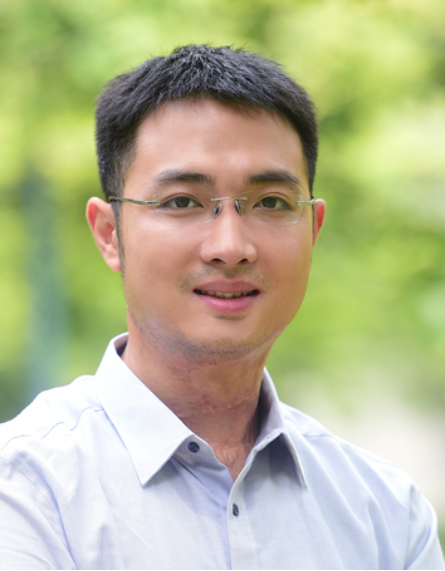
刘志锋,江西景德镇人。北京师范大学地理科学学部自然资源学院副教授,青海省“昆仑英才·高端创新创业人才”计划拔尖人才。中国自然资源学会青年科技奖(2019年)和北京师范大学优秀博士学位论文(2015年)获得者。中国自然资源学会资源持续利用与减灾专业委员会秘书长、《Landscape Ecology》编委。主要从事景观地理和城市景观可持续性研究。先后主持和参与国家级项目10余项,合作出版著作4部,在“Nature”、“Nature Water”和“Nature Communications”等主流学术期刊上发表论文90余篇,其中SCI/SSCI期刊检索论文60余篇。
彭 建(教授,北京大学)
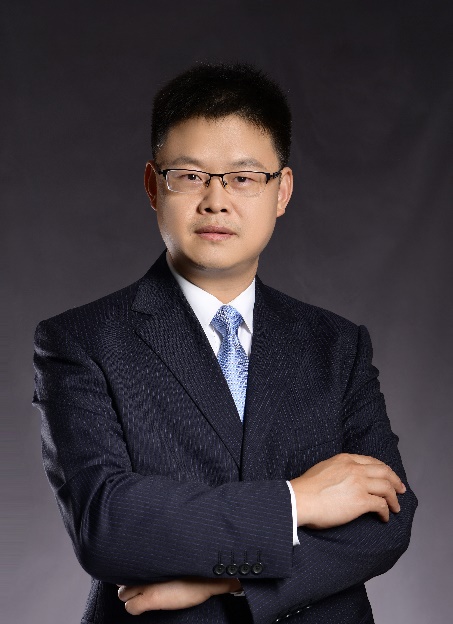
彭建,北京大学城市与环境学院教授、博士生导师,教育部长江学者特聘教授,主要从事景观格局与社会-生态过程耦合研究,主持国家自然科学基金优青项目、国际合作项目、联合重点项目等,曾获中国地理学会、生态学学会青年科技奖。现任国际景观生态学会中国分会副理事长、中国生态学学会景观生态专委会主任委员、中国地理学会学术工作委员会秘书长,《Applied Geography》共同主编,《Progress in Physical Geography》学科编辑,《Landscape Ecology》、《Landscape and Urban Planning》、《Ecosystem Services》、《生态学报》等学术刊物编委。
史培军(教授,北京师范大学)

史培军,北京师范大学教授,应急管理部--教育部减灾与应急管理研究院副院长、地表过程与资源生态国家重点实验室学术委员会副主任、第四届国家减灾委专家委员会主任、国务院第一次全国自然灾害综合风险普查办公室技术组组长、国务院学位委员会地理学科评议组合作召集人,中国青藏高原研究会副会长。同时担任全球变化人文因素(IHDP)/未来地球(Future Earth)核心科学计划—综合风险防范(IRG)科学指导委员会联合主席、联合国国际减灾战略(UNISDR)亚太科学技术顾问组共同组长、《国际灾害风险科学学报》(英文版)主编、沃尔沃环境奖评审团成员、国家杰出青年基金获得者、地表过程模型与模拟国家创新群体负责人,国际欧亚科学院院士等。曾任教育部科技委副主任、中国地理学会副会长、中国自然资源学会副会长、中国地理信息系统协会副会长、中国保险学会副会长。先后主持国家重大科技攻关、973、重点专项等6项国家科技项目,在Nature、Nature子刊、PNAS、中国科学、科学通报(中、英文版)、地理学报等学术期刊发表第一、通信作者论文207篇,出版第一作者专著(含地图集)21本,论著总他引1.8万次,获国家科技进步二等奖2项(分别排名第一、第二),部级科技奖4项(均排名第一)。长期从事自然地理学与综合灾害风险研究。
杨 锐(教授,清华大学)

杨锐,清华大学建筑学院景观学系联合创始人、系主任、教授,清华大学国家公园研究院院长。1998年,提议建设“滇西北国家公园和保护区体系”并持续进行了20余年的理论研究与实践。2003年,系统提出建立完善中国国家公园和保护区体系的4项战略、32字方针和41项行动建议。2014年以来,深度、全面参加了“国家公园”和“自然保护地体系”顶层设计咨询,提出中国特色国家公园建设技术框架。主持近20个国家公园和自然保护地重点实践,其中梅里雪山总体规划获得华夏建设科学技术奖一等奖和首届中国风景园林学会优秀风景园林规划设计一等奖。
谢花林(教授,江西财经大学)
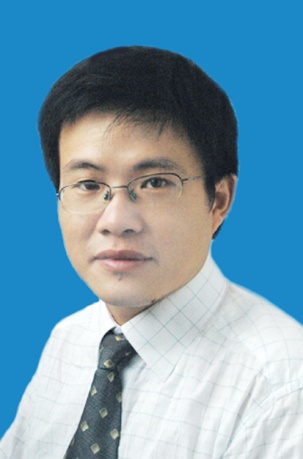
谢花林,江西莲花县人,教授,博导,现任江西财经大学应用经济学院(数字经济学院)院长、生态文明研究院院长、国家“万人计划”领军人才(2021),国家自然资源部科技领军人才(2022),全国文化名家暨“四个一批”人才(2021),国家百千万人才工程人选(2017),国家有突出贡献中青年专家(2017),享受国务院政府特殊津贴(2016),国家“万人计划”计划青年拔尖人才(2015),国家社会科学基金重大项目首席专家;连续四年入选Elsevier“中国高被引学者”榜单(2019、2020、2021和2022年)。主持国家社会科学基金重大项目和重点项目各1项,国家自然科学基金项目5项。在Land Use Policy、Land Degradation & Development、Landscape Ecology、《地理学报》、《自然资源学报》和《中国土地科学》等国内期刊发表学术论文200余篇,其中SCI/SSCI收录100余篇;出版学术著作20余部。获省部级一等奖1次,二等奖4次。研究方向:土地经济、生态产品价值实现、国土空间优化。